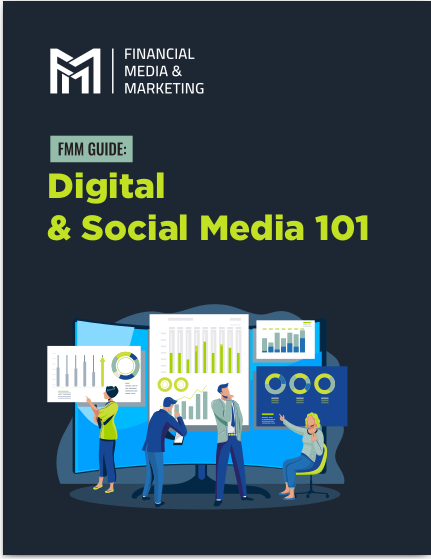Key Takeaways
-
Building credibility requires consistent effort and tailored strategies to inspire trust in your clients.
-
Effective communication and authentic engagement lay the groundwork for long-term loyalty.
Why Credibility Matters in Financial Advisory Services
As a financial advisor, your success hinges on more than just your expertise; it’s about building a foundation of trust with your clients. Credibility isn’t given; it’s earned through actions, communication, and consistency. When clients trust you, they’re more likely to stick around, refer you to others, and actively engage in your recommendations.
In a competitive industry, credibility is your secret weapon. Let’s explore how to establish and maintain it effectively.
Laying the Groundwork: Understand Your Client’s Needs
Listen First, Advise Later
Building trust starts with listening. Before jumping into solutions, take time to understand your client’s financial goals, concerns, and dreams. Active listening demonstrates empathy and ensures you provide tailored advice that resonates.
Ask Insightful Questions
Go beyond surface-level inquiries. For example:
-
What are your long-term financial goals?
-
What’s your risk tolerance?
-
How do you envision your retirement?
These questions not only provide you with critical information but also show clients that you genuinely care about their financial well-being.
Be Transparent: Trust Grows Through Honesty
Simplify Complex Topics
Financial jargon can intimidate clients. Break down complex concepts into relatable, digestible terms. Use analogies, visual aids, or simple language to clarify topics like investment portfolios, risk assessment, or retirement planning.
Disclose Costs and Risks
Clients value honesty. Be upfront about any fees, potential risks, and limitations in your recommendations. Transparency eliminates surprises and strengthens trust.
Demonstrate Expertise Without Overwhelming
Share Knowledge Thoughtfully
Your expertise is why clients seek your services, but be mindful of how you present it. Provide insights and data in a way that aligns with your client’s understanding and goals. Balance professionalism with relatability.
Stay Updated
Financial markets and regulations evolve. Regularly updating your knowledge and certifications ensures you’re offering current, relevant advice. Clients trust advisors who demonstrate a commitment to staying informed.
Build Authentic Relationships
Maintain Regular Communication
Consistency is key. Schedule periodic check-ins, even if it’s just to say hello or share a market update. Regular contact shows clients you’re invested in their success.
Show Empathy
Your clients are more than just account numbers. Acknowledge their personal milestones or challenges, and adapt your services to meet their changing needs.
Use Technology to Your Advantage
Streamline Client Engagement
Modern tools make it easier than ever to manage client relationships. Use scheduling software, automated reminders, and secure communication platforms to enhance efficiency and stay connected.
Provide Real-Time Updates
Clients appreciate timely updates on their investments and financial plans. Leverage dashboards or apps that allow them to track progress and feel in control.
Handle Mistakes Gracefully
Own Up to Errors
Mistakes happen. When they do, take responsibility immediately and outline steps to resolve the issue. Honesty in tough situations strengthens trust.
Learn and Improve
Use client feedback as a tool for growth. Implement changes based on their concerns to demonstrate your commitment to improvement.
Leverage Social Proof
Highlight Testimonials and Referrals
Satisfied clients are your best advocates. Share testimonials (with permission) or ask happy clients to refer others to your services. Word-of-mouth remains one of the most effective ways to build credibility.
Showcase Success Stories
While respecting confidentiality, share anonymized examples of how your strategies have helped clients achieve their goals. This demonstrates your value and expertise.
Stay Ethical and Professional
Follow Industry Standards
Adhering to industry best practices and regulations reinforces your credibility. Being compliant shows clients that you prioritize their financial security above all else.
Avoid Overpromising
Set realistic expectations about what you can deliver. Overpromising and underdelivering can damage trust beyond repair.
Engage Through Educational Content
Host Webinars and Workshops
Share your knowledge through free webinars or workshops. These sessions position you as an authority while providing value to prospective and existing clients.
Publish Informative Materials
Blog posts, newsletters, or videos that tackle common financial challenges can keep clients engaged and informed. Providing value without a sales pitch builds trust over time.
Consistency Is Key
Deliver on Promises
Reliability builds trust. When you say you’ll follow up or provide information, ensure you do it promptly.
Maintain Professional Boundaries
While it’s essential to build relationships, avoid crossing professional boundaries. This ensures interactions remain respectful and focused on client needs.
Keep Evolving: Personal Growth Translates to Better Service
Pursue Ongoing Education
Stay ahead of industry trends by attending seminars, obtaining certifications, or enrolling in advanced courses. Clients trust advisors who invest in their professional growth.
Seek Feedback
Ask clients for input on how you can improve. Implementing their suggestions shows that you value their opinions and are willing to adapt.
Closing the Gap Between Trust and Loyalty
Building credibility is a journey, not a destination. It requires intentionality, consistency, and a deep understanding of your client’s needs. By applying these tactics, you’ll not only earn trust but also foster enduring client loyalty. Remember, credibility isn’t just about being knowledgeable—it’s about being reliable, authentic, and client-focused.










